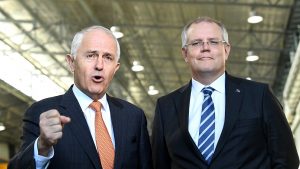Objection 1: “I don’t have a big enough deposit”
If you’ve been working hard to save a deposit and feel like it’s never going to be big enough, we have some exciting news for you! Size doesn’t always matter, especially not in this scenario. Being approved for a home loan is not necessarily dependant on how much of a deposit you have, but rather your capacity to repay the mortgage. There are all sorts of options available to aspiring homeowners who don’t have a 20% deposit.
Some lenders still offer home loans for up to 95% of the purchase price. The borrowing criteria can be more stringent than other types of loans, but if you have a clear credit history, stable employment, a solid income, minimal debt and are in a good asset position, you may qualify. Most home loan providers will want to see evidence you’ve saved at least 5% of the purchase price, and you may have to pay Lenders’ Mortgage Insurance with this type of loan – but you’ll have your foot on the property ladder! Speak to us to find out whether this kind of loan could work for you.
Another way to get a foot on the property ladder could be to ask your parents or a family member to be your guarantor. This is when they use the equity in their property as security for your loan. The right time to buy your first home is as soon as you can afford to do so!
Objection 2: “I think the market will downturn”
Whilst the property market does go up and down in cycles, “timing the market” is not as important as “time IN the market”. The sooner you buy a property, the sooner it will be possible for it to start to experience capital growth (which is the term we use to describe how much your property goes up in value whilst you own it).
There is always a possibility that your property will go down in value after you purchase it. However, you need to remember it has only gone down in value ‘on paper’ – you won’t actually lose any money unless you sell it. Market fluctuations are common and it is likely it will have recovered in value by the time you want to sell.
Choosing the right home in the right location can help protect against property market fluctuations and improve your chances of long-term capital growth. When you locate a property you’re interested in buying, we can help you check its capital growth potential with a free property market report – so please ask us.
Objection 3: “I can’t afford a home where I would want to live”
Most people don’t get to buy their dream home the first time around – it’s a goal you can work towards once you get on the property ladder. If you can’t afford to buy your dream home in your preferred location, you could look for something in another location, consider a smaller property that’s more affordable, or opt for a fixer-upper that has potential but just needs a little love. Another option that’s becoming increasingly popular is to rent-vest – rent where you want to live and buy an investment property somewhere else. That way, you can grow your nest egg to enable you to eventually buy the home you want.
There’s no time like the present to chat with us about your plans and finance options. Please get in touch and we’ll explain your borrowing capacity, home loan options and help you get pre-approval on your loan so you can start looking for a property to buy sooner. 




